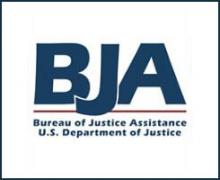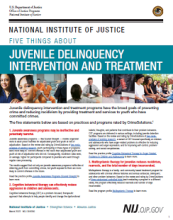Treatment/therapeutic community
Hitchcock Center for Women
Tapestry Program
Residential Substance Abuse Treatment for State Prisoners Program Frequently Asked Questions
Sex Offender Supervision: Communication, Training, and Mutual Respect Are Necessary for Effective Collaboration Between Probation Officers and Therapists
Evaluation of an Australian Domestic Abuse Program for Offending Males
A Mixed Method Evaluation of the Role of Religion in Desistance and Reentry
Evaluation of an Australian Domestic Abuse Program for Offending Males
A Mixed Method Evaluation of the Role of Religion in Desistance and Reentry
Meeting People Where They Are to Improve Institutional Culture
Incarcerated individuals deserve opportunities for healing and growth, but they often lack the necessary resources for such opportunities. Additionally, organizational cultures that don’t support these outcomes often stand in the way. Researchers and practitioners gathered at NIJ’s 2023 National Research Conference to share ideas and projects that will increase opportunities for incarcerated populations around the country. This show continues their conversation.









